An ongoing food festival is bringing alive the lost flavours, aromas and stories of Rampur to the heart of Mumbai
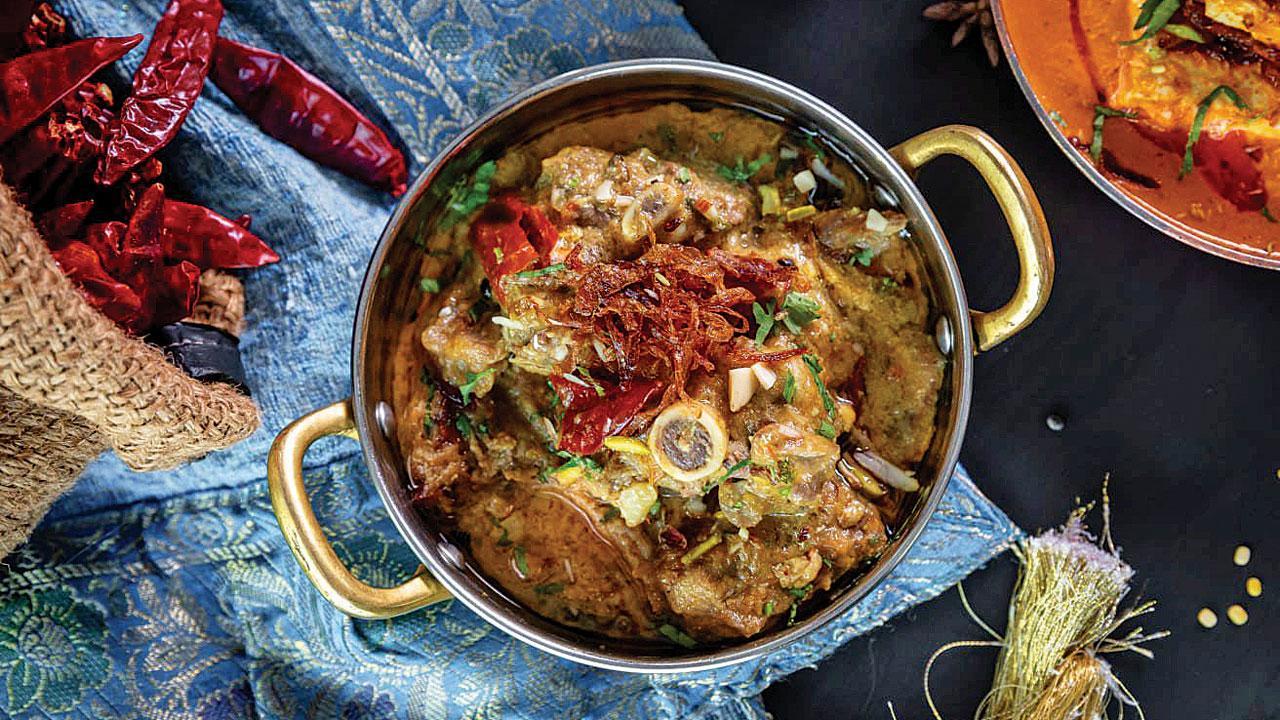
Mutton ishtew
Inside a commercial kitchen in Andheri East, spices are being hand-pounded, meat is being slow-cooked in copper pots, and milk is being thickened to make an unusual kheer. The aromas wafting around are sure to transport you to the regal bawarchikhanas or kitchens at the courts of the nawabs of Rampur, in Uttar Pradesh. Behind these delicious aromas at the Indian restaurant Saptami, are master chef Osama Jalali, who has been documenting Rampuri cuisine, his wife Begum Nazia Khan, and executive chef Avinash Kumar. They are bringing alive the flavours of Rampuri cuisine for Mumbai’s foodies.
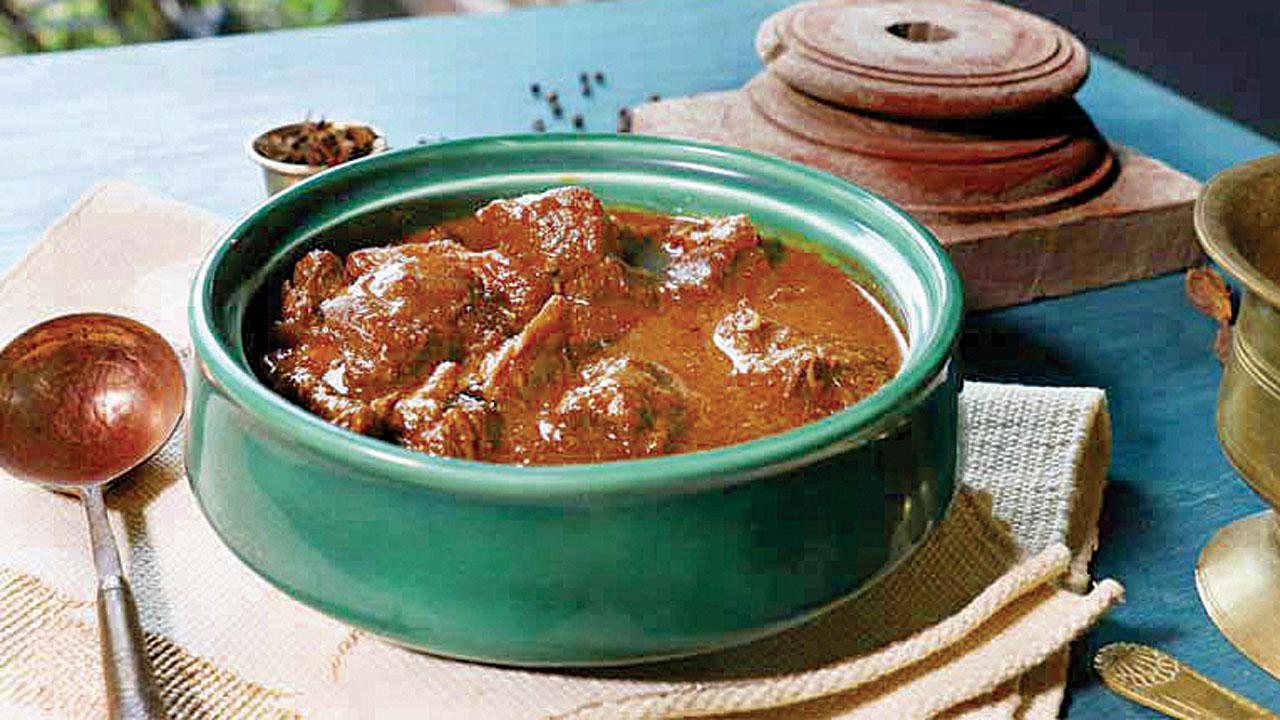
Taar gosht
Served with a side of history
“My mother and my wife are from Rampur. My mother learnt the culinary arts from the Rampur Nawab’s khansamas [cooks] Munne Bhaji and Razia Begum. After her marriage, she migrated to Old Delhi, where we have now lived for the last few decades,” Jalali tells us. Rampur is located between Delhi and Lucknow, the erstwhile Awadh. The cuisines of both Delhi and Lucknow have gained great popularity over the years, but Jalali believes that it is Rampuri cuisine which is truly the best of both worlds.
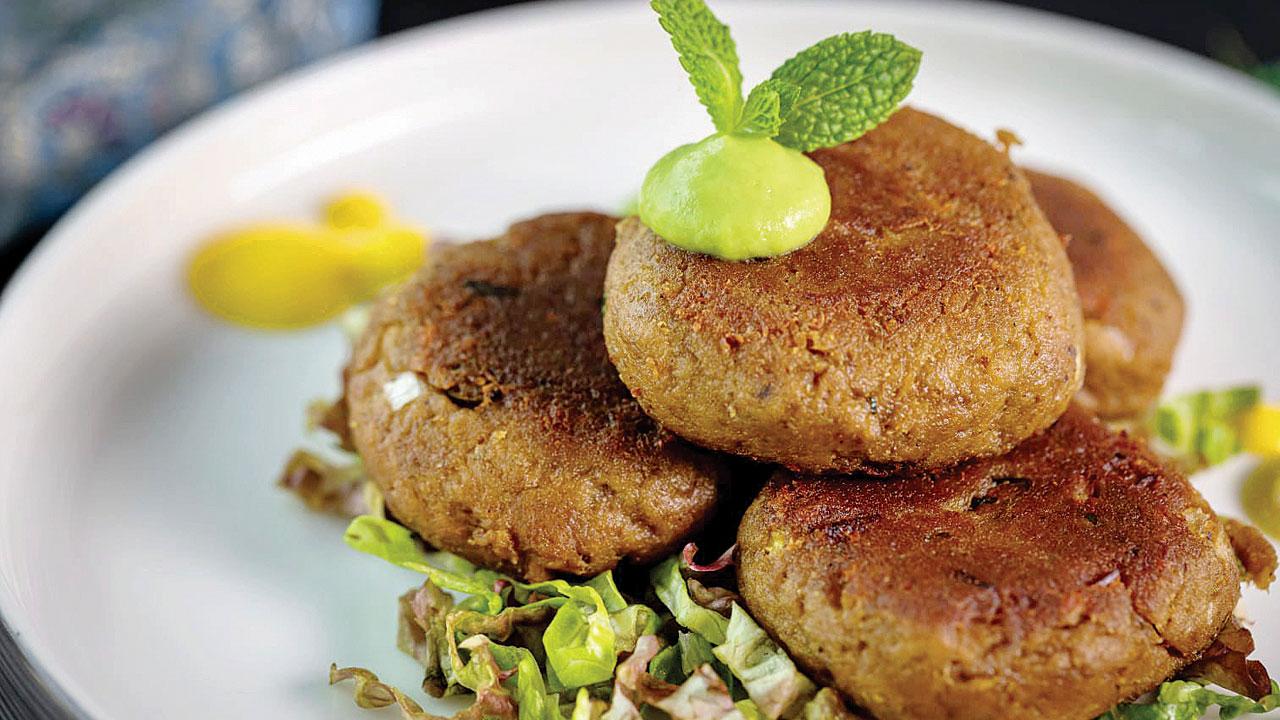
Galouti kebab
The cuisine of Delhi is robust while the one from Lucknow is refined and uses fragrant masalas and aromatics. Rampuri cuisine is more balanced, he adds. “It’s not as heavy on the stomach or as greasy and spicy as the fare from Delhi; nor is it as exotic as the one from Lucknow,” he explains, adding, “Every time Delhi was under an attack, artisans and khansamas from the city would seek shelter with the Nawab of Rampur. The last royal wedding that took place before the royal provinces became Union Territories was between the families of Awadh and Rampur. Some khansamas came to Rampur as part of the dowry.”
Documenting recipes
Interestingly, Jalali started his career as a food writer. On one occasion where he was served only green foam and red foam on top of a crumbled samosa in a chaat, instead of chutney and phirni in a liquid nitrogen bowl, he realised that most Indian restaurants were rebranding themselves into modern avatars. In the process, traditional recipes ran the risk of being lost in all the fanfare. It was then that he and his wife began preserving their heirloom recipes.
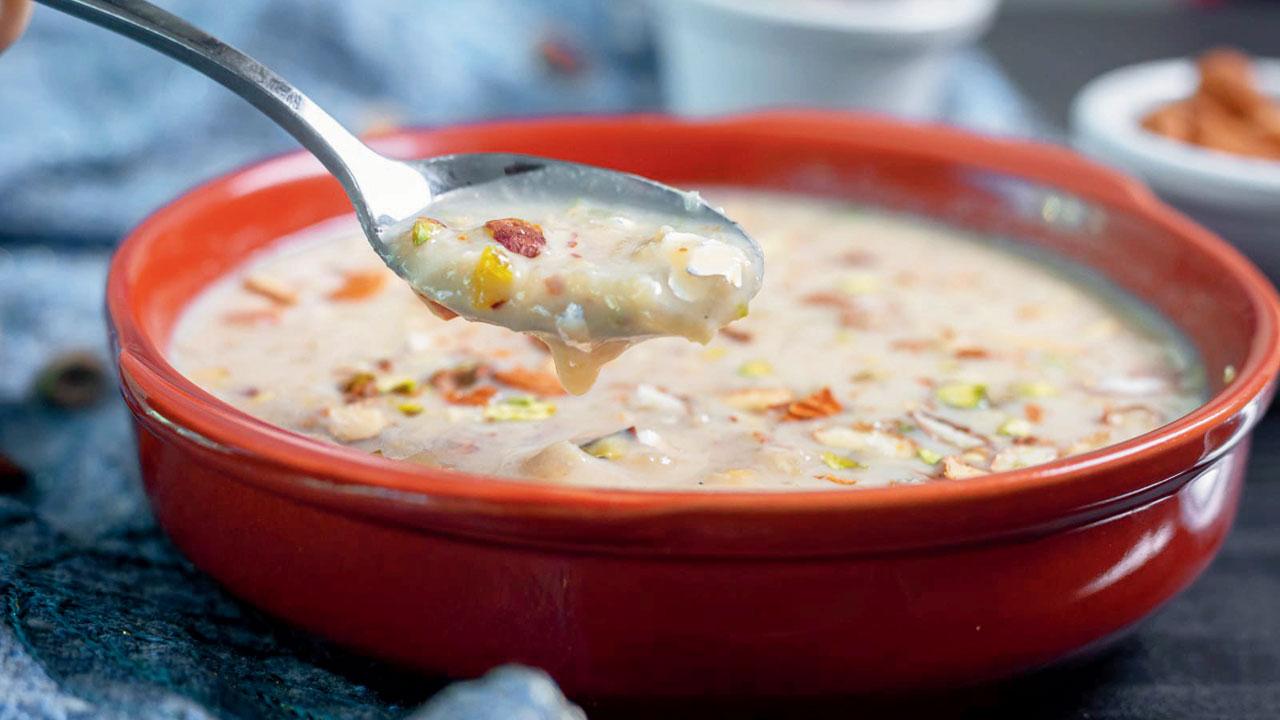 Gullati
Gullati
“We did a lot of research and even went to libraries and translated old Persian recipes and converted systems of measurements like tola, chatak and masha into teaspoons and tablespoons. You will be surprised at how advanced the cuisine of Rampur was,” remarks Jalali. For instance, he recalls, the nawabs would send the khansamas to Japan to learn cooking techniques and to France to learn the art of baking. Rampur was the first princely state to use raw papaya to tenderise meat, he informs us. “We make a gosht [mutton] ka halwa which is unique. It is unusual to hear of meat being used to make desserts. Rampuri chefs also made shimla mirch ka halwa and lehsun ki kheer. They cultivated the art of surprising people with a wow factor. Smoke or dhungar which was used in our traditional cooking has now made a comeback in modern fare,” he notes.
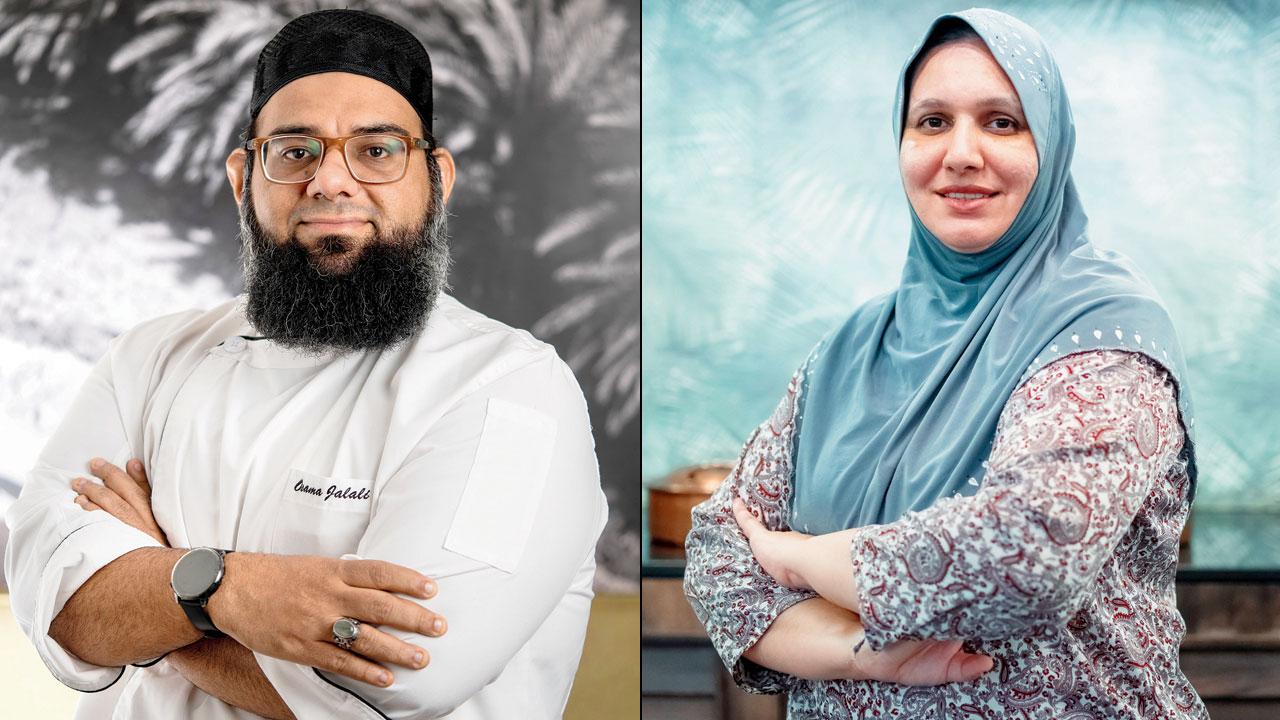
Osama Jalali (left) Begum Nazia Khan
Feast away
The menu at the Rampuri food fiesta features gullathi — a special kheer made with rice, milk, clarified butter, makhana and other nuts; taar gosht — a mutton curry without which no wedding in Rampur is complete; paneer nawabi, nihari kulcha, murgh ishtoo and kathal shammi kebab. Rampur was home to the Rohilla Pathans so there’s a variety of kebabs and Yakhni pulao on the menu. “Yellow chillies and cardamom are often used in Rampuri cuisine. We cook only in copperware as these utensils ensure even spread of heat. All ingredients are hand-pounded. We make our own blends and don’t use any outside masalas. It’s not just white or red gravies. Each dish is cooked from scratch in separate pots and retains its unique flavour and texture,” Jalali promises.
Till: November 20; 7 pm to 11 pm; 12 pm to 4 pm on Sunday (brunch)
At: Saptami, CTS 721/1, 721/A, Andheri Kurla Road, Andheri East, Sakinaka Junction
Call: 9004617824
Cost: Rs 1,900 onwards
 Subscribe today by clicking the link and stay updated with the latest news!" Click here!
Subscribe today by clicking the link and stay updated with the latest news!" Click here!










